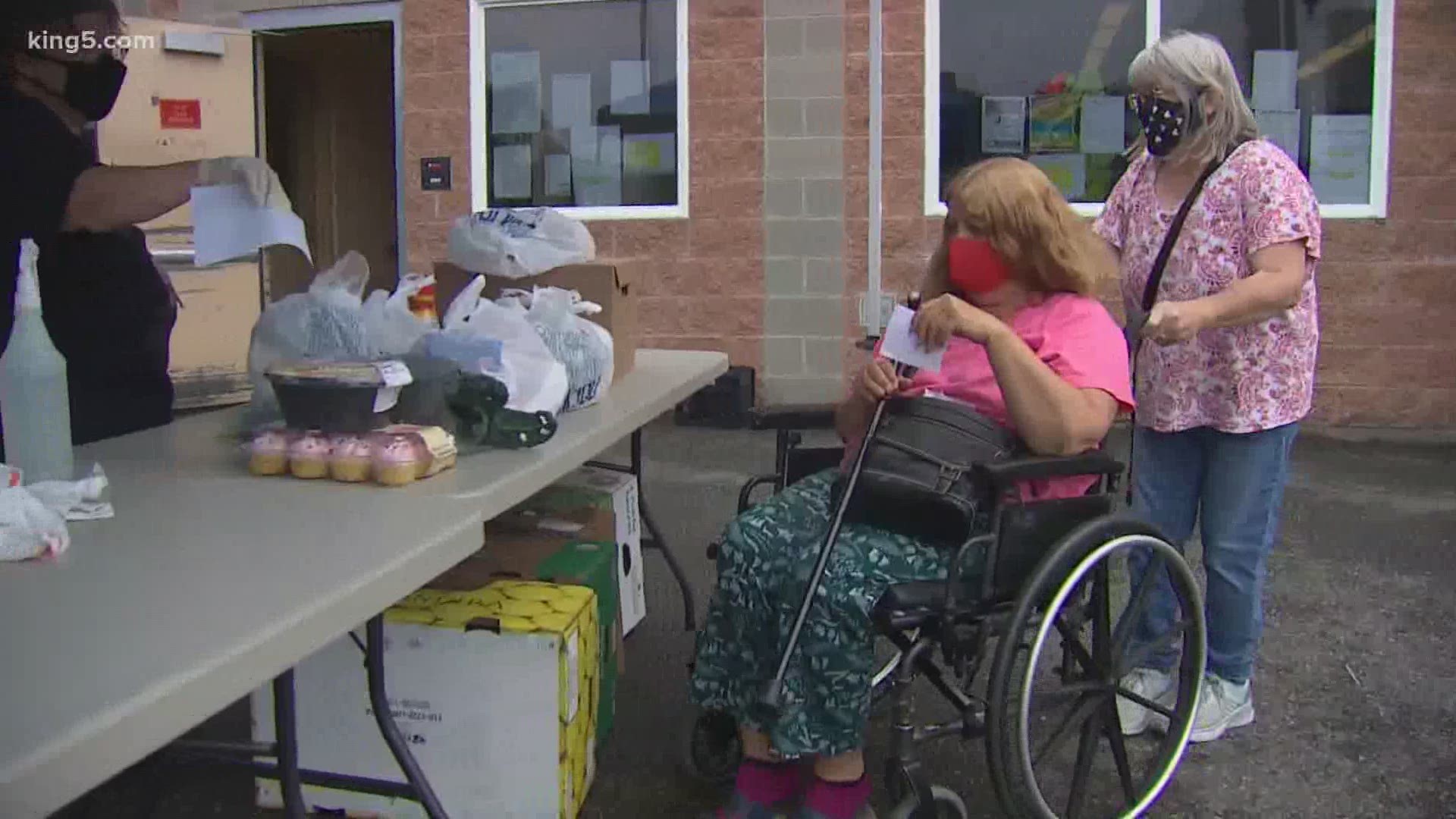SEATTLE — The novel coronavirus (COVID-19) pandemic has taken hunger in Washington state to new heights.
A new study from the University of Washington (UW) estimates statewide food insecurity is at 30%.
"It's higher than ever before," said Dr. Adam Drewnowski, the director of UW Nutrition Sciences. "Most vulnerable were single parents, women with children, low income and persons of color," he said.
2,621 people living in Washington were surveyed.
The results of the study were large disparities based on socioeconomic status, education, income and minority status.
"Clearly the food insecurity was not distributed equally across all neighborhoods, across all groups, there were clearly some people who suffered the most," said Drewnowski.
UW researchers were able to map out food insecurity by zip code in Seattle and King County.
"We do have concentrated pockets of food insecurity, as I said down in south county, Renton, Kent and Auburn," Drewnowski said.
The hope is that the data will help politicians better server their local communities.
"This is a way, first of all, for targeting communities of greatest need, allocating and prioritizing resources based on need [and] looking at where COVID hotspots may happen," said Drewnowski.
"The next issue was, what can be done to help them out and what can be done in terms of targeting interventions at the families with greatest need?"
Join us for the 20th anniversary of KING 5's annual Home Team Harvest event, benefiting Northwest Harvest. This year’s goal is to raise enough funds and donations to provide 20 million meals for families in need in Washington state.
Northwest Harvest is the largest independent hunger relief agency in the state, working tirelessly with more than 375 local food banks, meal programs, and high-need schools to end hunger and provide equitable access to nutritious food for all our Washington neighbors.

